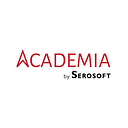EdTech’s Global Success: Key Learnings, New Opportunities, and more
The technological advancements are bringing a new change in the education sector. Within this robust combination, the education technology is making learning easier & fun-filled, institutional operations more streamlined, and helping institutions in overall growth and development.
Institutes are leveraging technology to optimize the experience of all stakeholders in the system. EdTech has become an inseparable part of institutes globally. According to EdSurge, there was $1.7 billion invested by venture capital funds into EdTech Market in 2019 across 105 deals in the United States alone and most of these investments were by large Series C investments, this graph has increased over the years.
It is high time for educational institutions to rely less on older technologies and choose the best one. With the rapid growth in the education sector, institutions must adopt a reliable tech solution. Various leading solutions build a strong scope of learning, development, and management.
Key Learnings for Educational Institutions
- Adoption of a Good Technology
In the emerging EdTech competition, various technologies can help educational institutions in the best ways, but it is crucial to pick a technology that can help meet the desired result and overall satisfaction in the best way.
Modern institutions need to opt for modern technology that can help meet the expectations of all stakeholders. There are various solutions/products like LMS, ERP/SIS, Immersive learning, and a lot more to help institutions in the best way.
- Choose Ways to Scale Up ROI
Various techniques can help institutions boost productivity and enhance operational efficiency. With the enhancement in technology, modern institutions need to adopt that extra factor which can help in paying attention to ROI improvement. Crucially, the technology you choose can be easy, simple, and flexible. Efficient technology can streamline and automate learning & development processes to help institutions focus on ROI.
- Focus on Student Engagement Processes
Students are the ultimate stakeholders for educational institutions, and they must include elements that attract and allure students. Multiple technologies like artificial intelligence, augmented reality, LMS, personalization, and more can be adapted to improve the online and offline classroom experience of the students. This leads to improving student satisfaction, retention, and more.
New Opportunities for Institutions
- Improved Stakeholder Experience
Advanced technology is helping stakeholders foster collaboration in the institution. An effective technology with a robust portal and a mobile application can make the life of all stakeholders easy. Right from admissions, enrollment, program registration, course management, examination, etc., can be done easily over mobile and web applications. Remote working capabilities also allow admins, super-admins, and other stakeholders to interact seamlessly about their day-to-day operations.
- Enhanced Social Learning
With the enhancement in technology, institutions need to understand that there should be an easy channel of communication between all the stakeholders that promotes social learning, collaboration, and communication.
- 24/7 Assistance
Active technical support helps institutions provide 24/7 assistance to all stakeholders. A multi-channel support system can allow students to opt and perform through chat, calls, emails, etc, providing easier access to any learning lesson or subject likewise.
Conclusion
Hope you liked the blog about EdTech learnings and opportunities, there are a lot more things that your institution can focus on before adopting a solution. You must analyze the needs of your institution and pick out the best one.
